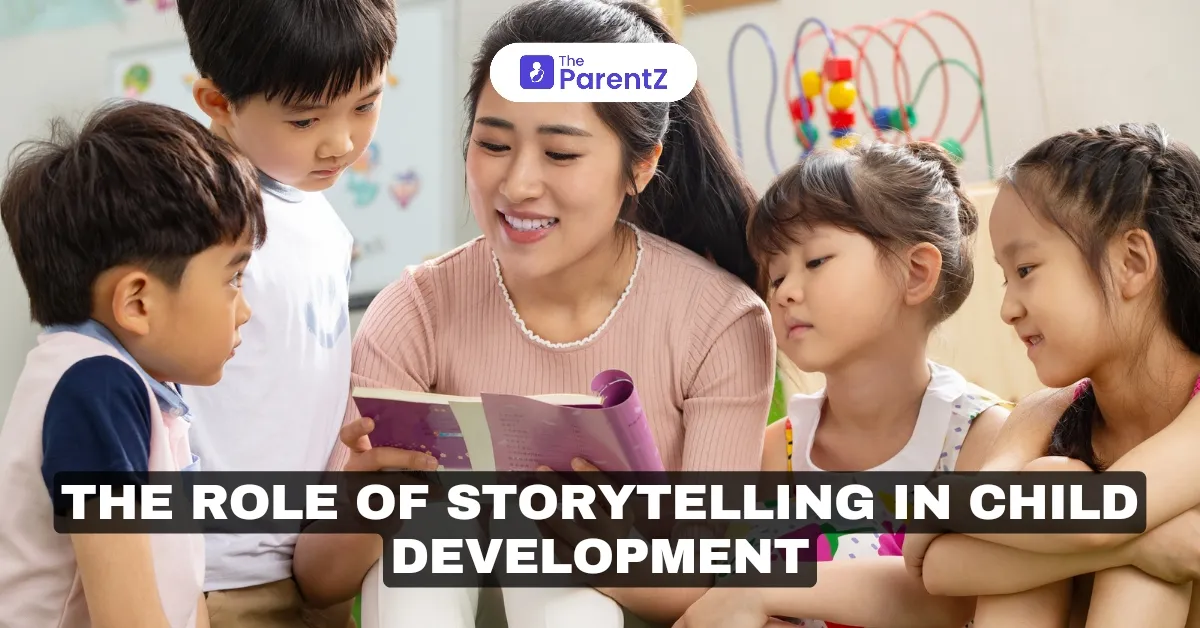Storytelling has been a fundamental part of human culture for centuries, shaping societies, beliefs, and traditions. For children, storytelling is more than just entertainment—it plays a crucial role in their cognitive, emotional, and social development. Through stories, children learn to process complex emotions, understand moral values, and expand their imaginations. As a powerful tool for learning and connection, storytelling fosters communication skills, creativity, and empathy in children.
In this article, we’ll explore the various ways storytelling contributes to a child’s development and provide tips for parents and educators to incorporate storytelling into daily life.
Cognitive Benefits of Storytelling
A. Language Development: Storytelling enhances a child's vocabulary and understanding of language structure. As they listen to stories, children are exposed to new words and phrases, helping them build linguistic skills that will benefit them in reading, writing, and communication.
B. Enhancing Memory and Comprehension: When children engage with stories, they practice recalling events, characters, and details, which helps improve their memory. The narrative structure of stories also teaches them how to understand sequences, cause and effect, and logical reasoning, which are critical cognitive skills.
C. Stimulating Imagination and Creativity: Stories encourage children to visualize characters, settings, and events in their minds, which fuels their imagination. This imaginative engagement helps children develop creative thinking skills, allowing them to explore new ideas, create their own narratives, and think outside the box.
Emotional Benefits of Storytelling
A. Processing Emotions Through Stories: Stories provide a safe space for children to explore complex emotions like fear, anger, joy, and sadness. By relating to characters who face challenges and overcome obstacles, children learn to process their own feelings and develop emotional resilience.
B. Building Empathy and Social Awareness: Through storytelling, children are introduced to diverse perspectives and experiences. By putting themselves in the shoes of story characters, children practice empathy and understanding, which are essential for building positive relationships and social skills.
C. Encouraging Emotional Expression: Storytelling invites children to express their emotions, whether through retelling a story or sharing their thoughts about a character's journey. This expression fosters emotional intelligence and encourages open communication between children and adults.
Social Benefits of Storytelling
A. Strengthening Communication Skills: As children listen to and share stories, they develop essential communication skills. They learn to articulate their thoughts, ask questions, and engage in discussions, all of which contribute to their social confidence.
B. Fostering Connections and Relationships: Storytelling is an inherently social activity, often bringing children together with parents, teachers, and peers. Whether through shared reading sessions or group storytelling, this interaction fosters a sense of community and strengthens bonds.
How to Incorporate Storytelling into Daily Life
A. Reading Aloud and Interactive Storytelling: Parents and educators can make storytelling a regular part of daily routines by reading aloud to children. Interactive storytelling, where children are encouraged to participate by answering questions or adding their own twists to the story, further engages them and enhances comprehension.
B. Encouraging Children to Tell Their Own Stories: Giving children the opportunity to create and share their own stories builds confidence and creativity. Encourage children to draw pictures or use toys to act out their narratives, helping them practice storytelling in a fun and engaging way.
Conclusion
Storytelling is a powerful tool that plays a key role in a child's development, from enhancing language and cognitive skills to fostering empathy and emotional intelligence. By making storytelling a regular part of your child’s life, you can nurture their imagination, build stronger connections, and support their overall growth.









Be the first one to comment on this story.